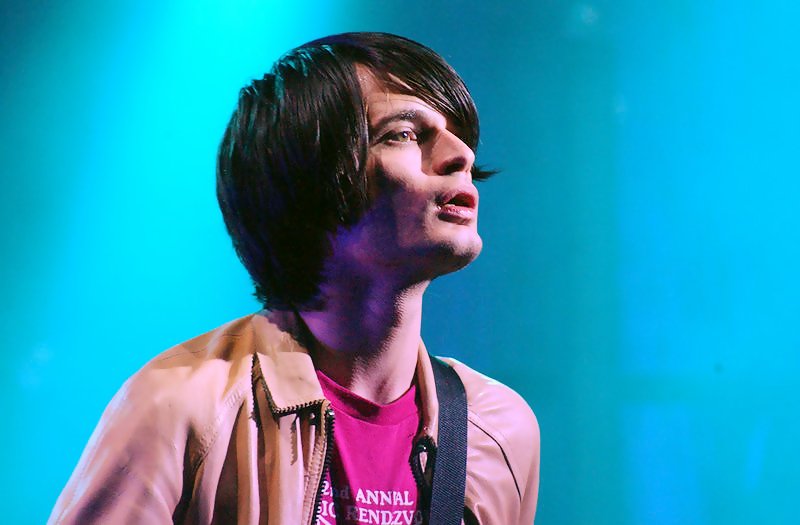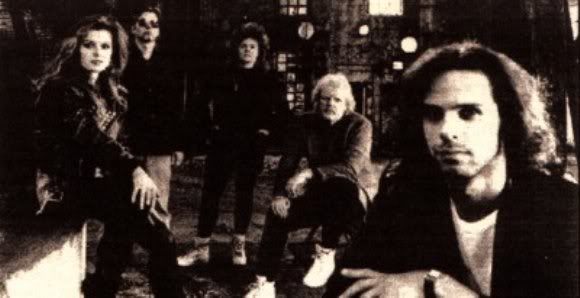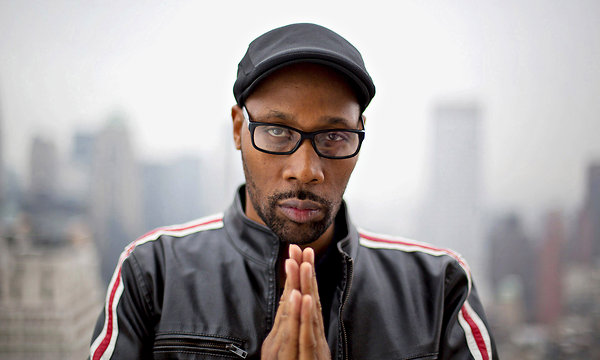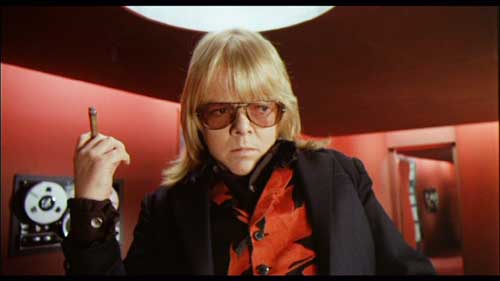After you’ve topped the charts, made it on MTV (back when they still played videos at least) and reaped in your millions off of that one-hit wonder, the question is always: “What’s next?” Well your manager may firstly recommend trying your hand at another album, another tour, a television guest spot, but after all that then what? That’s when we see stars and musicians (and pro-wrestlers) trying their hands at acting and even politics (just look at Jesse Ventura, but I’m getting off topic). But what most big musicians DON’T do that by all rights should when wishing to expand their interests in the entertainment business is becoming a composer.
Assembled before you are the top ten, the best of the bunch, that have not only taken a stab at expanding their talents from stage to screen but have done so so successfully that they’ve even eclipsed, in some situations, their former careers.
10. Tom Waits
The Star: Tom Waits is the king of reinvention and one of the most versatile talents around. From blooming out of his jazz influenced period in the 70’s he invented a dark folk style all his own which brought him much acclaim in the mid-eighties but first started kicking around movies acting in the late 70’s, first in Sylvester Stallone’s Paradise Alley. It wasn’t until Waits started hanging around the likes of Francis Coppola and Jim Jarmusch that he was able to really take control of the screen sonically.
The Score: Waits kept to his jazzy roots alongside Crystal Gale for the hazy, smoke-filled nightclub atmosphere of his first score for Francis Ford Coppola’s 1982 romantic musical, One From the Heart. We got the sweet, old school melodies we expected from Waits and Gale and were happy to see him pop up again and again in Coppola’s films as an actor in the Outsiders, Rumble Fish, and (my favorite) as probably the best incarnation of Renfield in Bram Stoker’s Dracula, but he didn’t return to the audio department until his collaborations with indie icon Jim Jarmusch.
After starring in Jarmusch’s festival hit Down by Law and providing a neat radio voice in Mystery Train, Waits was given the opportunity to open up his range for the anthology film Night on Earth, scoring five different distinct styles to five different global cities and eloquently capturing the essence of each and ultimately put Waits on the map in a whole new medium.
9. Jonny Greenwood
The Star: Radiohead debuted on the scene with Pablo Honey in 1993 and have since become indie rock legends spanning a very diverse and ever-creative twenty year career and though front man Thom Yorke tends to take the majority of the group’s spot light, guitarist and musical renaissance man Jonny Greenwood has begun to truly prove himself time and time again as one of the most dynamic musical forces out there.
The Score: 2007 saw the sounds of Greenwood hauntingly come to life on the big screen underscoring Paul Thomas Anderson’s epic award-winning drama, There Will Be Blood and caught us all off guard.
Anderson is known for working with musicians on his films, most notably Aimee Mann providing songs for Magnolia (does Marky-Mark count as a musician?), so this shouldn’t have seemed to have come from that far out of left field but the power behind Greenwood’s score is frankly shocking. It adds perfectly on top of Lewis and Dano’s magnificent performances and the wonderful cinematography of Robert Elswit to deliver a truly gut-wrenching experience.
8. Tangerine Dream
The Star(s): Euro-prog-rock gods Tangerine Dream formed by Edgar Froese in West Berlin in 1967 and shot up the charts in England the rest of Europe (even being invited to play for surrealist poster-child Salvador Dalí) in the early 70’s but their mystical electronic tunes never really made it that far across the pond to the US to the radio…but mostly to the screen.
The Score: Tangerine Dream made their first big cinematic debut scoring William Friedkin’s Wages of Fear remake, Sorcerer, which helped build the tension and retain the fresh feeling of the, at times, flawed retelling. Their most notable contribution, though, is their now classic Pink Floyd inspired score to Michael Mann’s debut neo-noir heist film, Thief, starring James Caan which allows their very surreal audioscape to work in tandem with Mann’s dream-like depiction of Chicago. Even if Mann still has doubts on it, we never will. It’s absolutely sublime.
7. RZA
The Star: Straight outta the Wu-Tang Clan, Robert “RZA” Fitzgerald Diggs is a very eastern influenced rap artist who has made a name for himself, not just alongside Ghost Face Killah and Method Man, but as a solo artist, writer, actor and even director…
The Score: …But what he may go down in history for is his epic score to Quentin Tarantino’s Kill Bill vol. 1. I think “Battle Without Honor or Humanity” may be all he’ll ever need on his tombstone. The entire score jumps between the raucous and the upbeat sounds of tracks like “Battle” but also work their way back down to gentle, traditional Japanese sounding pieces that make terrific use of wind instruments like the haunting “Lonely Shepherd”. We haven’t gotten this much out of a rap artist since Mark Wahlberg (see: above) and I’d love to see more.
6. Paul Williams
The Star: If not for Dolly Parton, Paul Williams may have been the single most productive song writers of the 1970s. He literally did everything from his own work to the Muppets and just this year was featured on Daft Punk’s latest album (and yes he’s still alive).
The Score: After years of solo work and television, Williams was recruited by then little known horror directed Brian DePalma to score and star as the villain in the cult glam rock opus the Phantom of the Paradise. Williams takes on more than just the role of Swan as he orchestrates a full Faust opera, reworks nearly all the songs into different rock variations from surf to glam and even sings the majority of the tracks.
Williams adds a great deal of credibility and strength to what could have been quickly dismissed as a silly Rocky Horror rip off (though it came out a whole year before Curry’s fishnets ever graced the screen) and makes the soundtracks one of the most memorable and beloved of the decade and helped to define the concept of a rock opera far beyond the Who’s parameters and paved the way for such works as Repo! The Genetic Opera and even Green Day’s American Idiot musical.





